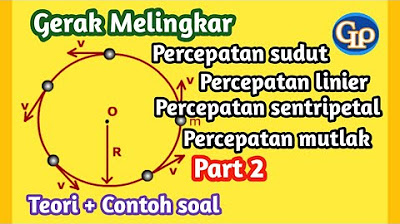A 1400-kg sports car accelerates from rest to 95 km/h in 7.4 s. What is the average power delivered
Summary
TLDRThis video script explains how to calculate the average power delivered by a sports car's engine during acceleration. Starting from rest, the car reaches 95 km/h in 7.4 seconds. The process involves converting speed to meters per second, calculating kinetic energy change, and then dividing by time to find power in watts. The script also demonstrates converting watts to horsepower, resulting in an estimated 88 horsepower for the car's engine.
Takeaways
- 🏎️ The problem involves calculating the average power of a 1400 kg sports car accelerating from rest to 95 km/h in 7.4 seconds.
- 🔧 The formula for power is work over time, which in this context is the change in kinetic energy over the time taken to accelerate.
- ⏱️ The given time for acceleration is 7.4 seconds.
- 🚫 The script notes that direct calculation of work is not possible due to the lack of force data.
- 🔄 The work done is equated to the change in kinetic energy, which is calculated using the formula for kinetic energy: \( \frac{1}{2}mv^2 \).
- 📐 The initial velocity (v1) is zero since the car starts from rest.
- 🔢 The final velocity (v2) must be converted from 95 km/h to meters per second, resulting in approximately 26.389 m/s.
- 📉 The change in kinetic energy is found by subtracting the initial kinetic energy (which is zero) from the final kinetic energy.
- 📈 The mass of the car is given as 1400 kg, which is used in the kinetic energy calculation.
- 📊 The calculated change in kinetic energy is approximately 487,465.52 joules.
- ⏳ The average power is then found by dividing the change in kinetic energy by the time taken, resulting in 65,873.71 watts.
- 🐎 An estimation is made to convert the power from watts to horsepower, yielding approximately 88 horsepower.
Q & A
What is the given mass of the sports car in the problem?
-The given mass of the sports car is 1400 kilograms.
What is the final velocity of the sports car?
-The final velocity of the sports car is 95 kilometers per hour.
How long does it take for the sports car to reach its final velocity?
-It takes 7.4 seconds for the sports car to reach its final velocity.
What is the formula for power used in this problem?
-The formula for power used in this problem is power = work / time.
How is work related to kinetic energy in this context?
-Work is equal to the change in kinetic energy in this context.
What is the formula for kinetic energy?
-The formula for kinetic energy is KE = 1/2 * m * v^2.
How do you convert the final velocity from kilometers per hour to meters per second?
-To convert 95 kilometers per hour to meters per second, multiply by 1000 to convert kilometers to meters and then divide by 3600 to convert hours to seconds, resulting in 26.389 meters per second.
What is the change in kinetic energy of the sports car?
-The change in kinetic energy of the sports car is 487,465.5247 joules.
How do you calculate the average power delivered by the engine?
-The average power is calculated by dividing the change in kinetic energy by the time, resulting in 65,873.71 watts.
How do you convert the power from watts to horsepower?
-To convert power from watts to horsepower, divide the power in watts by 746. In this case, 65,873.71 watts is approximately 88 horsepower.
Outlines

Esta sección está disponible solo para usuarios con suscripción. Por favor, mejora tu plan para acceder a esta parte.
Mejorar ahoraMindmap

Esta sección está disponible solo para usuarios con suscripción. Por favor, mejora tu plan para acceder a esta parte.
Mejorar ahoraKeywords

Esta sección está disponible solo para usuarios con suscripción. Por favor, mejora tu plan para acceder a esta parte.
Mejorar ahoraHighlights

Esta sección está disponible solo para usuarios con suscripción. Por favor, mejora tu plan para acceder a esta parte.
Mejorar ahoraTranscripts

Esta sección está disponible solo para usuarios con suscripción. Por favor, mejora tu plan para acceder a esta parte.
Mejorar ahoraVer Más Videos Relacionados

Physics - Acceleration & Velocity - One Dimensional Motion

Average and Instantaneous Power Example

GCSE Physics - Acceleration #52

F293-Gerak melingkar ,percepatan sudut,percepatan linier,percepatan sentripetal,percepatan mutlak

Porsche 911 GTS | Hybrid good or bad? | First Drive Review | @evoIndia

FISIKA KELAS X: GERAK LURUS (PART 1) Jarak, Perpindahan, Kelajuan, Kecepatan, Percepatan
5.0 / 5 (0 votes)
